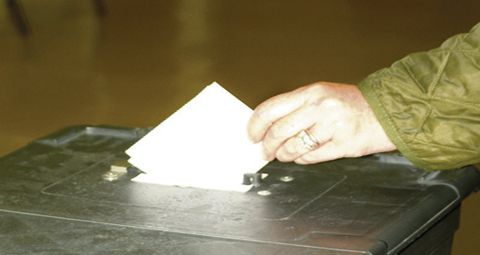May 22 | ![]() 0 COMMENTS
0 COMMENTS ![]() print
print

You ‘cannae’ label ‘canny’ Scottish Catholics
This week's editorial leader
Like the proverbial search for the Holy Grail, the ‘Catholic vote’ in Scotland—once an urban legend—is rapidly being translated into the annuals of time as myth, often by those who do not have a firm grasp on either politics or religion in Scotland.
A UK Catholic magazine celebrating an impressive anniversary this year has extrapolated from post-general election statistics that there was a massive swing in the Catholic vote in Scotland away from the Labour Party towards the SNP. The report was picked up by a daily Scottish nationalist newspaper (that should have known better) because it suited its own ends and, perhaps, filled a hole in its own post-election analysis. Times are, of course, tight in society and in newspapers.
What the Catholic and secular publications failed to note is that the 48 per cent of Catholic voters pledging support for the SNP more or less mirrored the percentage of support in Scottish electorate in general, so any change in the so-called ‘Catholic vote’ in fact matched rather than bucked the national trend. Religion, therefore, was a non factor. And the magazine’s attempt to compare 2015 Labour support in Scotland to Labour support in the rest of the UK was an exercise in futility that showed a failure to grasp the unique factors in Scotland, in our Catholic Church and our society, during the 2015 general election.
In last week’s SCO Aidan Michael Cook encouraged young Catholics to become more involved in the political process. The aforementioned pundits would have us falsely believe they were all rushing to the SNP camp. Scots are not called ‘canny’ for nothing, however. The Catholic Church in Scotland is a broad Church, made up of city and country dwellers, including all social classes and those of all political persuasions. Commentators who speak of it in sweeping generalisations run the risk of showing their ignorance of developments in Scotland and demonising and alienating Scottish Catholics.
On the World Day of Prayer for Communication on Sunday Archbishop Philip Tartaglia, president of the Bishops’ Conference of Scotland, highlighted the need for a Catholic conversation at home and in the press, and he was wary of the secular press when it jumps to conclusions or pushes agendas.
Perhaps we all need to work on our lifelong Catholic education and include religious and political analysis written out with Scotland in a list of what to read with care when it comes to our Faith and our Church. There are, after all, Scottish and European elections, and, no doubt, many issues of concern to the Church, ahead.










